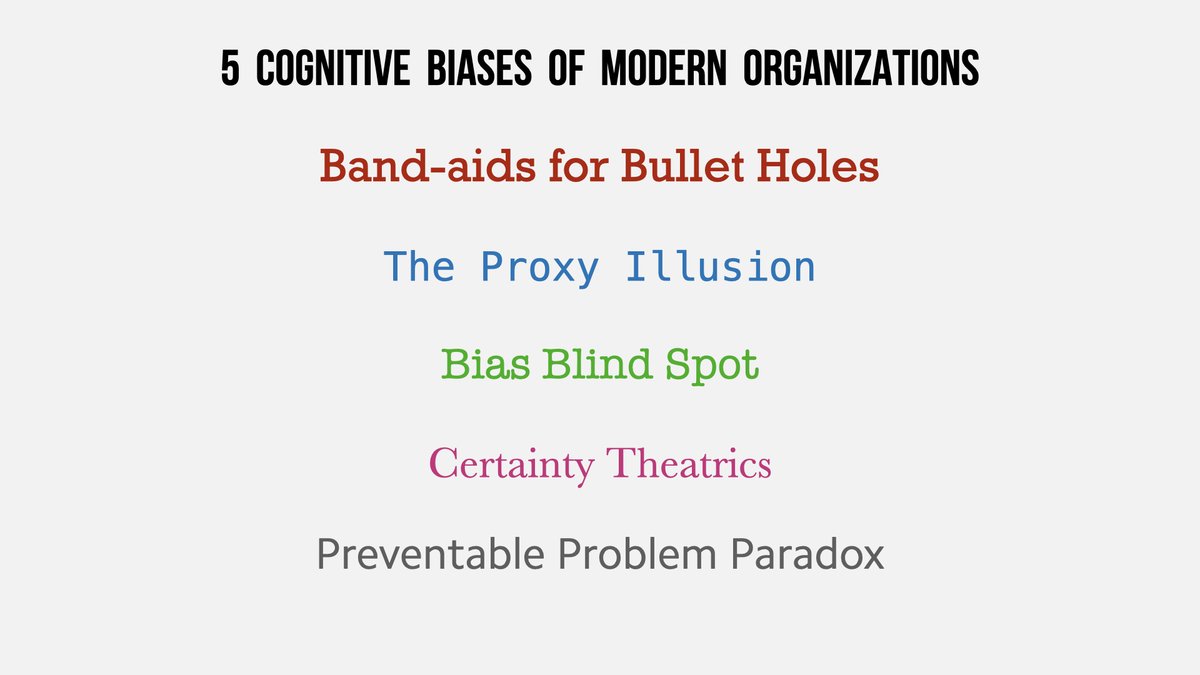
🗓️Recap of May 2021 content:
Black Turtleneck Fallacy
Valuing time
Product clarity exercise
Instinct matters in product
Success + Tranquility
Recognizing happiness
Simple stuff
Transactional managers
% confidence
Writer's block for PMs
A tragedy of many orgs
and more..
Thread👇🏾
Black Turtleneck Fallacy
Valuing time
Product clarity exercise
Instinct matters in product
Success + Tranquility
Recognizing happiness
Simple stuff
Transactional managers
% confidence
Writer's block for PMs
A tragedy of many orgs
and more..
Thread👇🏾
The Black Turtleneck Fallacy
https://twitter.com/shreyas/status/1397738053096022019
When allocating their time, most people just seek a positive ROI. To achieve much greater outcomes in lesser time, you should instead seek to minimize Opportunity Cost. Probably the most valuable thing I will ever say, especially for senior product folks.
https://twitter.com/shreyas/status/1393598149114023938
Pay attention to the simple stuff
https://twitter.com/shreyas/status/1393771491246809097
Pay attention to this stuff to be a clearer thinker than the average smart person:
https://twitter.com/shreyas/status/1394108257094934531
Try this simple exercise by yourself or in a small group. Then work backwards from the sentence you come up with, and make it true via your product, its branding, and marketing. (this will very likely be higher value than a dozen strategy brainstormings)
https://twitter.com/shreyas/status/1397365246939963393
One more argument in favor of accepting instinct as an important aspect of building successful products:
https://twitter.com/shreyas/status/1392512931925876738
Too many people are ostensibly smart & successful, but fail to ever achieve tranquility. A few thoughts on achieving success with tranquility:
https://twitter.com/shreyas/status/1394471201917992960
Something that's counterintuitive for most product leaders: when your team is working on an extremely challenging project, you should proactively acknowledge to them that you understand the difficulty & the degree of challenge.
https://twitter.com/shreyas/status/1393993049521352707
If you want to be a more influential leader, make sure your communication is not purely transactional. This doesn't mean spending 15 minutes on small talk. It is more about making subtle but important changes to your mindset & communication style.
https://twitter.com/shreyas/status/1393214721814274050
A tip for managers to improve decision quality and create more empowered teams:
https://twitter.com/shreyas/status/1391205176107667465
Make this small change and see how the quality of product discussion & ideas improves:
https://twitter.com/shreyas/status/1390471199491194880
I still struggle with the "Product Manager's Writer's Block". Here are a couple of tips to tame it:
https://twitter.com/shreyas/status/1392711857257938944
As a team leader, be aware of these cognitive biases of orgs & teams:
https://twitter.com/shreyas/status/1391594501437751301
If you run a large org or a company, pay attention to this:
https://twitter.com/shreyas/status/1388961449377079297
If you've reviewed most of this content, would you kindly take a survey? (just 1 required question & 2 optional)
It would help me immensely to get your feedback.
Head over to SurveyMonkey for a super-quick survey:
surveymonkey.com/r/HFKZQY5
(takes <2 min)
Thank you very much
🙏🏾
It would help me immensely to get your feedback.
Head over to SurveyMonkey for a super-quick survey:
surveymonkey.com/r/HFKZQY5
(takes <2 min)
Thank you very much
🙏🏾
(tip: save/bookmark this thread if you want to review these May 2021 tweets in the future)
Back to the top of this thread:
https://twitter.com/shreyas/status/1399807559830151169
(more recaps for recent followers)
All my 2020 content:
All my 2020 content:
https://twitter.com/shreyas/status/1344430419966529538
Jan 2021 content
https://twitter.com/shreyas/status/1358264769216581632
Feb 2021 content
https://twitter.com/shreyas/status/1365851642789130243
Mar 2021 content
https://twitter.com/shreyas/status/1378174496931147780
Apr 2021 content
https://twitter.com/shreyas/status/1388527418852347904
A couple more additions from May 2021 that I missed earlier (btw, this is why I want Twitter to provide the ability to insert a tweet mid-thread, without forking the thread into 2 parts)
Mega thread of product management frameworks, covering prioritization, strategy, decision-making, communication, career growth, etc etc.
https://twitter.com/shreyas/status/1399042778613485578
It is often hard for us to recognize when we are happy
https://twitter.com/shreyas/status/1389764781800755200
• • •
Missing some Tweet in this thread? You can try to
force a refresh




